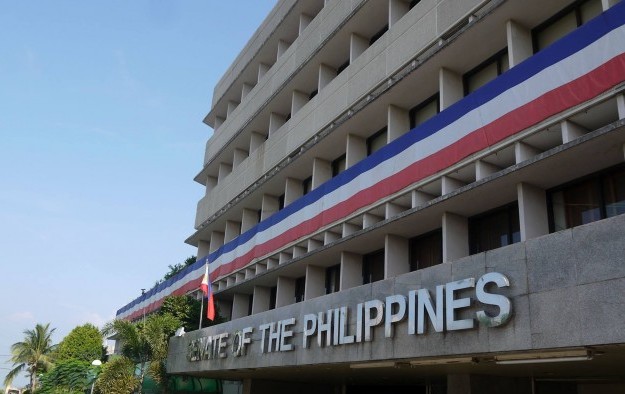Philippine Senate moves to include casinos in AML law
Feb 08, 2017 Newsdesk Latest News, Philippines, Top of the deck

The Philippine Senate has moved closer to including casinos in the coverage of the country’s Anti-Money Laundering Act, as one of the Senate’s panels began analysing three different bills on the matter.
The panel “agreed in principle to endorse the inclusion of casinos in the law,” said Representative Ben Evardone, as quoted by the Philippine Star newspaper. Mr Evardone chairs the Senate’s Committee on Banks and Financial Intermediaries.
“We have tasked a small group to consolidate three related bills. The only issue that remains to be resolved has to do with the threshold amount that would trigger the filing of a suspicion transaction report with the Anti-Money Laundering Council (AMLC),” he reportedly said.
The bills being discussed at the Senate propose to include casinos – namely land-based, Internet and ship-based casinos – to the list of bodies that are required to report suspicious transactions.
One of the bills – submitted on November 29 by a group of senators – also suggests the inclusion of “chipwashing and junket operators”, defined in the bill as “any person who brings a person, a group of persons, or junket players in the casino premises to participate in the gaming operations”. The casino regulatory manual of the country’s casino regulator, the Philippine Amusement and Gaming Corp (Pagcor), makes it clear that “chipwashing and junket operators” are deemed to be third-party commercial actors.
The bill submitted in November would require casinos and junket operators to report to the country’s AMLC what were referred to as “covered” – as well as suspicious – transactions. A covered transaction is defined in the bill as a transaction in cash or other equivalent monetary instrument exceeding PHP500,000 (US$10,000). One of the other bills proposes to fix the threshold amount at PHP5 million.
In Macau, the reporting threshold for casino transactions is MOP500,000 (US$62,570). The U.S. Department of State regularly urges Macau to reduce the threshold set for casinos to report “large” transactions to the equivalent of US$3,000 “to bring it in line with international standards”.
Mr Evardone was quoted as saying that the aim of introducing coverage of casinos under the Philippines’ AML law is “to protect the gaming industry from illegal activities so it can grow and attract more gamers and investors”.
The inclusion of casinos in the Philippines’ AML Act is one of the recommendations of the Financial Action Task Force (FATF) – a global body responsible for bolstering the fight against worldwide money laundering – in order to avoid the potential blacklisting of that country. In February 2013, the Paris-based FATF had already mentioned specifically the risks associated with the exemption of casinos from that law.
The Philippines casino industry came under renewed international scrutiny – regarding anti-money laundering controls – when news broke in March 2016 that hackers had allegedly stolen US$81 million from Bangladesh central bank accounts held at the Federal Reserve Bank of New York, and some of that money allegedly found its way into the Philippines’ casino sector.
Related articles
-
 Philippine Senate committee supports...
Philippine Senate committee supports...Sep 21, 2023
-
 POGO ban would leave Philippine tax...
POGO ban would leave Philippine tax...Aug 07, 2023
More news
-
 Donaco EBITDA up y-o-y to above US$4mln...
Donaco EBITDA up y-o-y to above US$4mln...Jul 26, 2024
-
 HK listed Palasino upgrades Czech...
HK listed Palasino upgrades Czech...Jul 26, 2024
Latest News
Jul 26, 2024
Border-casino operator Donaco International Ltd has achieved a 164.17-percent year-on-year increase in its latest quarterly group earnings before interest, taxation, depreciation and amortisation...Sign up to our FREE Newsletter
 (Click here for more)
(Click here for more)
Pick of the Day
”We’ve got more traction outside of Macau at the moment. But Macau’s going be a bigger focus for us”
David Punter
Regional representative at Konami Australia
Most Popular
 Sheraton brand to exit Londoner Macao, to be Londoner Grand July 25, 2024
Sheraton brand to exit Londoner Macao, to be Londoner Grand July 25, 2024  Macau regulator probes unlicensed gaming agents July 24, 2024
Macau regulator probes unlicensed gaming agents July 24, 2024  Philippines gives 20k aliens in POGOs 60 days to leave July 25, 2024
Philippines gives 20k aliens in POGOs 60 days to leave July 25, 2024  Philippines-listed DigiPlus says not affected by POGO ban July 24, 2024
Philippines-listed DigiPlus says not affected by POGO ban July 24, 2024  Sands China 2Q EBITDA down q-o-q amid low hold, renovation July 25, 2024
Sands China 2Q EBITDA down q-o-q amid low hold, renovation July 25, 2024






